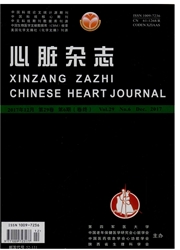

 中文摘要:
中文摘要:
目的:探讨有氧运动训练能否通过调节心肌细胞自噬改善老年小鼠心肌收缩舒张功能。方法:采用老年C57小鼠(20月龄,10只),以成年小鼠(4月龄,10只)为对照,无负重游泳训练9周(每周5d,每天1h),建立有氧运动训练模型。模型建立后,急性分离各组小鼠心肌细胞,采用单心肌细胞动缘探测系统检测心肌收缩舒张能力。应用蛋白免疫印迹法(Westernblot)检测自噬相关蛋白的表达。结果:有氧运动训练可有效地改善衰老小鼠心肌收缩舒张能力,表现为可显著增加老年组小鼠心肌细胞最大收缩幅度(PS)和最大收缩和舒张速率(±dL/dt),有效缩短舒张90%时程(TR90)(均P〈0.05)。有氧运动还可显著上调衰老心肌中单磷酸腺苷活化蛋白激酶(AMPK)磷酸化水平,进而抑制其下游雷帕霉素靶蛋白(mTOR)的活性(均P〈0.05)。检测心肌自噬标志物Beclin-1和Atg7发现,与成年组相比,老年组小鼠心肌自噬水平显著降低(P〈0.05),但有氧运动iJrl练可显著改善衰老心肌细胞自噬,运动训练上调心肌细胞自噬的作用,在AMPK基因敲低小鼠(AMPKKD,10只)被显著抑制。采用自噬诱导剂雷帕霉素处理则可改善衰老小鼠心肌收缩舒张的能力(均P〈0.05)。结论:有氧运动训练可有效地上调衰老小鼠心肌细胞自噬的水平,进而改善衰老小鼠心肌收缩和舒张能力,其机制可能与激活心肌AMPK—mTOR通路有关。
 英文摘要:
英文摘要:
AIM: To evaluate the effect of exercise training on cardiac myocardial contractile dysfunction and the underlying mechanism involved with a special focus on autophagy. METHODS: Young (4 months) and aged (20 months) mice maintained 9-week free-loading exercise training (swimming 1 h/day, 5 days/week). In vitro study was performed on cardiomyocytes from each group and cardiac contractile functions were evaluated using edge-detection system. Protein expression was measured by Western blot. RESULTS: Exercise training significantly improved the cardiomyocyte contractile function in aged hearts, which was evidenced by increased peak shortening (PS) and maximal velocity of shortening/re- lengthening ( + dL/dt) along with reduced time-to-90% relengthening ( TRgo ) ( P 〈 0.05 ). Exercise training ameliorated the AMPK activity and inhibited mTOR in aged hearts. Myocardial autophagy level markedly decreased in aged hearts compared with that in their younger counterparts. However, exercise training significantly improved the aging myocardium autophagy. Exercise-induced upregulation of cardiac autophagy was blunted in AMPK KD mice. Autophagy inducer rapamycin significantly reduced aged car- diomycyte contractile dysfunction ( P 〈 0. 05 ). CONCLUSION : Our data suggest that exercise may sup- press aging-induced cardiac contractile defects through AMPK regulated autophagy in aged hearts.
 同期刊论文项目
同期刊论文项目
 同项目期刊论文
同项目期刊论文
 期刊信息
期刊信息
